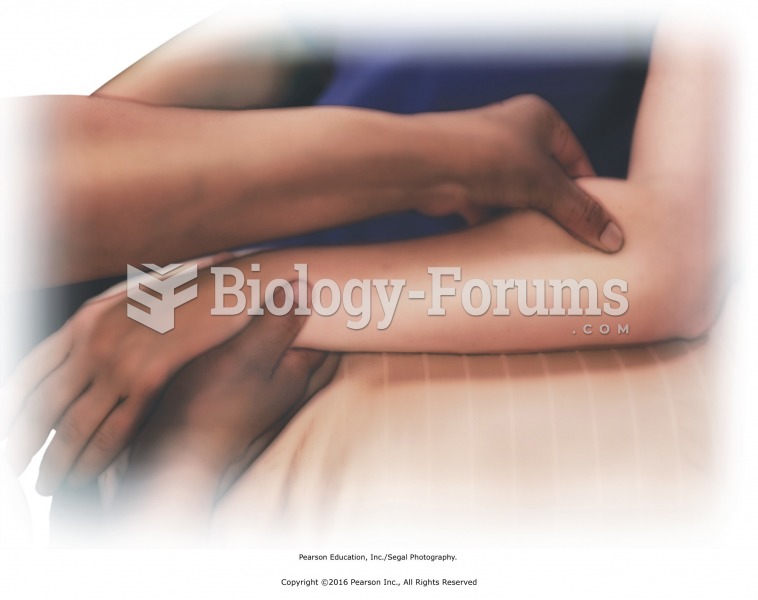|
|
|
Human neurons are so small that they require a microscope in order to be seen. However, some neurons can be up to 3 feet long, such as those that extend from the spinal cord to the toes.
Intradermal injections are somewhat difficult to correctly administer because the skin layers are so thin that it is easy to accidentally punch through to the deeper subcutaneous layer.
If all the neurons in the human body were lined up, they would stretch more than 600 miles.
The lipid bilayer is made of phospholipids. They are arranged in a double layer because one of their ends is attracted to water while the other is repelled by water.
Many people have small pouches in their colons that bulge outward through weak spots. Each pouch is called a diverticulum. About 10% of Americans older than age 40 years have diverticulosis, which, when the pouches become infected or inflamed, is called diverticulitis. The main cause of diverticular disease is a low-fiber diet.
 The relationship of substrate con- version (as measured by optical density) to the amount of patient ...
The relationship of substrate con- version (as measured by optical density) to the amount of patient ...
 Squeeze posterior leg muscles. Apply along muscles from knee to ankle. Use same hand position as in ...
Squeeze posterior leg muscles. Apply along muscles from knee to ankle. Use same hand position as in ...




